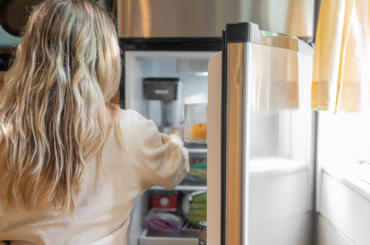As the spread of COVID-19 intensifies, parents are starting to wonder what will happen if they get sick. There is plenty of guidance out there about how to protect families from the virus, but what happens when the primary caregivers in a household become infected? What if there’s only one caregiver in the house? These questions are causing major stress in homes all over the country, but there are some ways parents can prepare now—and put their minds a little more at ease.
Parenting in the time of coronavirus can look very different depending on the family members living in the home. For example, caregiving for an infant requires much more direct physical contact than for an older child or a teenager. However, teens may require more firm boundaries to enforce safety measures.
The following are six tips that can help all families prepare ahead of time in case a parent or caregiver catches the virus:
- Make a list of each child’s needs that involve physical contact. For instance, if a toddler lives in the home, the list might include getting dressed, using the bathroom, and brushing their teeth and hair. For each item listed, write down any ideas about how to reduce or eliminate physical contact during those moments.
- Designate one room to serve as the quarantine area inside the home. Any infected family members should stay alone in that room as much as possible, and the room should be disinfected regularly.
- Get familiar with the Center for Disease Control’s guidelines for cleaning and disinfecting…and put them into action right away! If someone in the house is sick, it’s ideal if they can have their own bathroom to use. If that’s not possible, experts recommend wiping down the bathroom at least once daily (put disinfectant in the toilet bowl, and disinfect surfaces like faucet handles and doorknobs).
- Come up with a plan B, C, D, etc. Talk with family members, friends, and close neighbors about who would be willing and able to step in with child care in the case that a child’s caregivers are hospitalized or too ill to get out of bed. Make sure everyone involved is familiar with these plans.
- Prepare some meals in advance and keep them in the freezer. This will minimize the amount of work (and contact with food) you’ll need to deal with in the event you fall ill.
- Breastfeeding moms need not worry! Breastmilk has been determined to be very low-risk in spreading the virus. Sick and nursing parents should be sure to use a facemask while breastfeeding. If a breastfeeding mom is too sick to nurse, she can express milk and bottle it so someone else can help feed the baby.
Of course, all of the planning in the world can seem futile for a single parent with no safety net. Many single parents rely on grandparents to help raise their kids, but since folks over 65 are considered high-risk, this isn’t the safest option. Here are some practical tips that can help single parents make a plan in case they become sick:
- Identify trusted people in your family or social circle who are practicing social distancing and aren’t in a high-risk group. This can be your pool of helpers if needed. You can set up regular babysitting shifts (confined to one room or outdoors to reduce the spread of germs), or have your helpers do other things to ease your burden, like bringing groceries or cleaning supplies.
- Reach out to other single parents in your network or look into local single parent Facebook groups or support groups. Identify other parents you could potentially swap shopping or other responsibilities with if either of you become infected.
- Call United Way at 2-1-1 for information about resources available in your area for families in crisis.
- Communicate with your kids even more than you think you need to. Without other adults to enforce safety measures, it becomes vitally important for your kids to understand as much as they can about why they need to keep their distance if you become sick. PBS Kids has a great explainer on talking to your kids about the virus.
As we move through this global crisis together, the most helpful thing any parent can do is support other parents. Checking in on each other via phone or video chats, having meals delivered for each other, and offering child care help remotely when possible are just a few of the ways parents can all lighten the load for each other.
Currently, there are nearly 165,000 cases of coronavirus in the US, and over 800,000 cases worldwide. Everyone, parent or not, can help slow the spread of coronavirus by washing their hands for 20 seconds often, covering coughs and sneezes, staying indoors as much as possible, and keeping six feet of distance from others when outside of the home.







